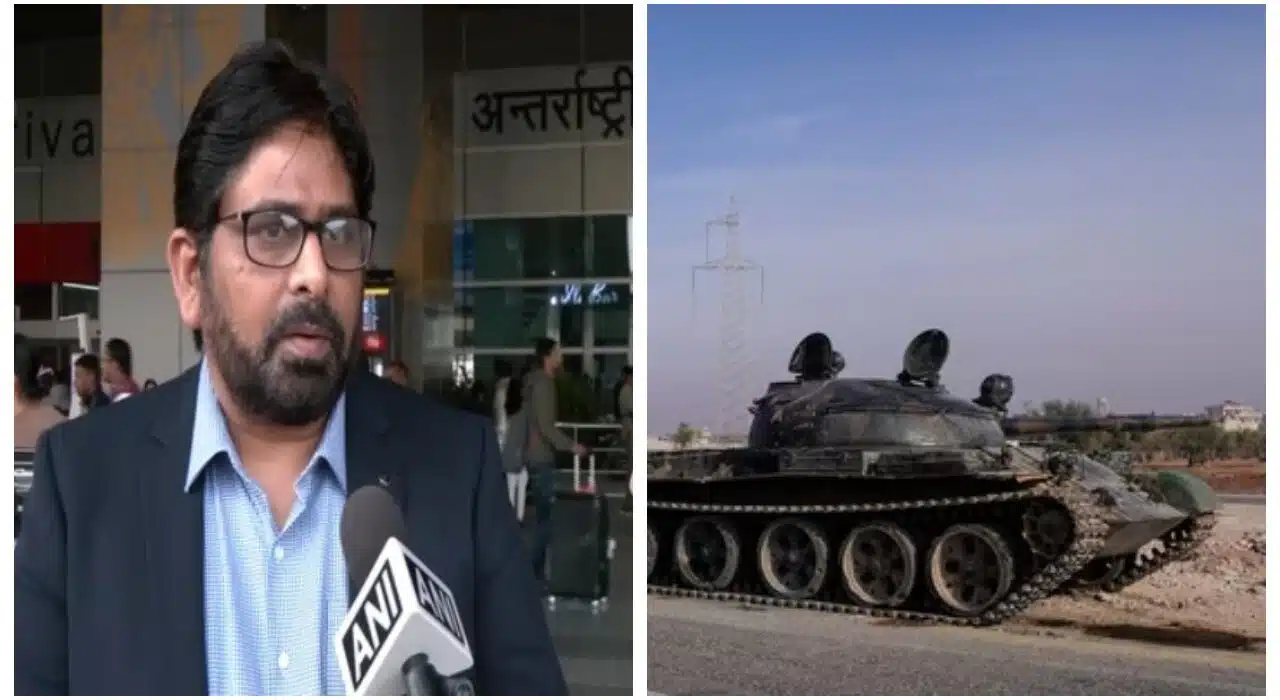Ravi Bhushan, a Ghaziabad resident, becomes the first Indian to return from Syria. He told harrowing stories of Syrian unrest and the genocide committed by Israel after launching inhuman strikes and crises in Palestine and Lebanon. He also acknowledged the Indian government’s prompt action, which allowed the safe departure of Indian citizens from the conflict zone.
“The situation in Syria is devastating,” Bhushan told ANI. “People are firing openly on the streets. Bombings, looting, and destruction are everywhere. Vehicles, airports, and banks have been severely damaged.”
Statements of first Indian to return from Syria following Israel’s genocide
Bhushan described how the Indian embassy launched a rescue operation to bring 75 citizens back home. “We were the first group rescued. The embassy reached out to every individual, constantly checked on us, and even provided food if anyone faced issues,” he said.
The opposition overpowered Damascus, thereby expelling President Bashar al-Assad after 24 years of rule. Bhushan recalled witnessing the chaos, saying, “Small children and women were left outside for hours in freezing temperatures. It was horrifying to see.”
According to Bhushan, the Indian embassy in both Lebanon and Syria played a critical role. “They also would regularly inform us about the rescue plan via message, every hour” etc. We were lucky not to experience the worst levels of hardship,” he said.
Bhushan, who was in Syria on business, described how conditions there rapidly worsened. “When I arrived, things seemed normal. Even my client reported to the embassy everything was okay. But within two or three days, the situation turned completely chaotic.”
During the evacuation, 75 Indian nationals were airlifted, including 44 pilgrims from Jammu and Kashmir, to Beirut on Wednesday.
“The panic is spreading. The violence and devastation are far from its end,” he remarked, focusing on the imperative of the rescue initiatives of the Indian government.
Why Israel has attacked Syria?
Israel has been consistent in stating that its military operations are aimed at ridding its borders of perceived security risks. The country has held that its military attacks Syria to destroy its military infrastructure which would bar weapons from flowing to the groups it has designated as extremists, most notably opposition faction Hayat Tahrir al-Sham (HTS), which led the rebellion against Assad.
Israel’s airstrikes and ground invasions into the UN-controlled buffer zone along the Golan Heights represent a broader effort to dismantle Syrian military capacity. Although Israel frames such actions as preemptive defense, critics contend that the attacks are opportunistic, in the sense that they exploit the transition from decades of authoritarian rule in Syria to consolidate power over contested regions such as the Golan Heights.
